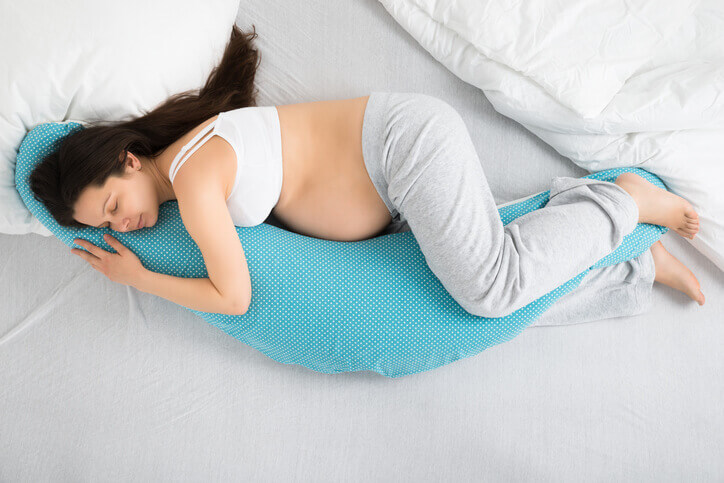Understanding Common Sleep Problems During Pregnancy and Their Solutions
While the average adult needs between seven to nine hours of sleep every night, pregnant women generally require a few more hours or short naps throughout the day. But sometimes, getting extra rest isn’t as easy as it seems!
Some women find pregnancy a considerable hurdle to achieving a restful night’s sleep. The issues often include heartburn, a frequent need to urinate, upset stomach, anxiety, leg cramps, and snoring. People suffering from sleep deprivation need to address it. Sleepless nights are a serious health issue. A good night’s rest is essential for the baby’s health and you.
The staff at Family Creations have many years of experience working with gestational surrogates and women who are working with egg donors. We like to say we’ve “seen it all” when addressing sleep problems during pregnancy! Here are a few tips we’ve learned after working with thousands of women that could help you rest, relax, and sleep a bit better.

1. Put Out the Fire of Heartburn
Many pregnant women suffering from sleep deprivation say that heartburn is a significant issue keeping them awake at night. It’s a burning sensation in your stomach, chest, or throat caused by stomach acid going to places it shouldn’t be.
First, avoid spicy, acidic, or greasy foods – especially for dinner or as a late-night snack. You might be craving pizza for french fries at midnight, but that could be what’s causing the problem or worsening it. You might also consider keeping a food diary of what you eat during the day to spot the possible culprit.
Eating lighter meals in the evening also gives your body more time to digest before bed. If changes to your diet don’t fix the heartburn causing your sleep problems during pregnancy, talk to your doctor about over-the-counter or prescription antacids that will be safe for you and your baby.
2. Let Pillows Be Your Friend
Take it from us: extra pillows are a must for pregnant women suffering from sleep deprivation. The more pillows, the better. Try placing them between your knees or on either side of you to make turning over more comfortable. Body pillows, like the one in the photograph, can make a huge difference in addressing sleep problems during pregnancy.
3. How to Reduce Nighttime Trips to the Bathroom
Another common issue of pregnant women suffering from sleep deprivation is their frequent need to urinate. If you wake up at 3:00 am every night with the need to pee, you can probably thank the baby sitting directly over your bladder.
As your pregnancy progresses, try drinking less toward bedtime. This strategy should help reduce the number of late-night bathroom trips you need.
4. Try to Quiet Your Racing Mind
Thinking about the baby can be exciting, but it can also cause your mind to race, and that will cause sleep problems during your pregnancy. Our advice? Make time to exercise during the day. We get it – working is the last thing you feel like doing when you’re tired and sore. But exercise is essential for everybody.
Start easy with low-intensity exercise like walking or swimming. Then, treat yourself by listening to relaxing music, taking a warm shower, or trying meditation exercises. Slowing your breathing and letting go of the many thoughts racing through your mind can help you fall asleep.
Still Suffering from Sleep Deprivation?
These simple tips should help you sleep more soundly at night and during naps. But if your sleepless nights continue, it’s time to talk with your physician. They can help with additional guidance on how to rest and get the sleep you and your baby need.
Family Creations is Here to Help
Our agency works closely with surrogates and qualified egg donors to help couples and individuals realize their dreams of having a family. If you’re curious about working with us, reach out! We look forward to hearing from you.
